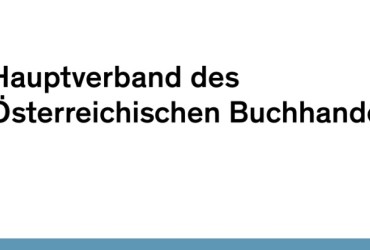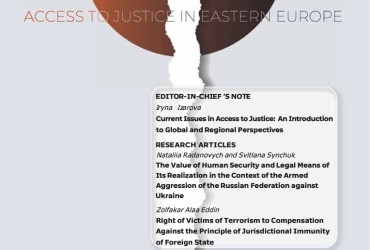
Jun
AJEE Monthly Update
In June 2022, a few new Online First publications were placed online under these links:
Note from the Field
Access to Justice Amid War in Ukraine Gateway
Natalia Antonyuk
https://doi.org/10.33327/AJEE-18-5.3-n000312
The dynamics of amendments to the Criminal Code of Ukraine after the start of the war show that the criminal law was not sufficiently ready for application during the war. First of all, a number of acts that are socially dangerous have not been singled out as criminal acts. Some existing articles needed to be amended to differentiate criminal liability.
It is possible to state that collaboration activities have a high level of public danger and should therefore be criminalised. The severity of punishment for such actions depends on the type of collaborationism. Scholars and law enforcers in countries analysing Ukraine’s experience and changes in criminal law in connection with the war should clearly delineate the criminal range of acts of treason and analyse whether there are any socially dangerous acts that are obviously harmful to national security but remain outside of the notion of treason.
Note from the Field
Access to Justice Amid War in Ukraine Gateway
Oksana Uhrynovska, Anastasiia Vitskar
ADMINISTRATION OF JUSTICE DURING MILITARY AGGRESSION AGAINST UKRAINE: THE ‘JUDICIAL FRONT’
https://doi.org/10.33327/AJEE-18-5.3-n000310
This article is devoted to the study of the peculiarities of the administration of justice in the context of the large-scale military aggression of the Russian Federation against Ukraine. Within this framework, the authors carried out a detailed analysis of the recommendations on the work of courts in martial law provided by the Council of Judges of Ukraine and the Chairman of the Supreme Court. Taking into account the recommendations adopted during the conditions of martial law and the current jurisprudence formed at that time, the peculiarities of civil proceedings in martial law were singled out and analysed in detail, focusing on a specific procedural institution.
Adrián Vaško
https://doi.org/10.33327/AJEE-18-5.3-a000309
The article is focused on the use of special rights or means by the intelligence agency of the Slovak Republic. The use of these statutory means in a democratic society is in the public interest, especially in the context of current security challenges (e.g., international organised crime, terrorism, etc.). At the same time, however, the use of special means by the intelligence agency represents a significant interference with guaranteed fundamental human rights and freedoms, in particular, the right to privacy. In this article, the author examines the admissibility of the use of special intelligence tools in the context of the case law of the European Court of Human Rights and presents de lege ferenda recommendations for the regulation of the relevant legislation governing the activities of the intelligence agency of the Slovak Republic.
After a critical evaluation, the author states that the legal regulation is likely to require an amendment in the short term to ensure compliance with Art. 8 of the Convention: the right to respect for private and family life. Then, in the case of a complaint by a Slovak citizen regarding interference with the right to privacy using special means by the intelligence agencies of the Slovak Republic, it can be said that there was a violation of this right.
Maryna Stefanchuk
MODERN TRENDS IN THE FORMATION AND DEVELOPMENT OF THE HUMAN RIGHTS MECHANISM IN UKRAINE
https://doi.org/10.33327/AJEE-18-5.3-a000311
The article highlights the modern determinants of the formation and function of institutions of the national human rights mechanism in Ukraine. Particular attention is paid to the institutions of the justice system as key elements of the national human rights mechanism, the formation and functioning of which, at the present stage, are determined by a number of factors, at both internal (national) and external (supranational) levels. It is established that external determinants determine the impact on the human rights mechanism in Ukraine through functional indicators of its effectiveness in the evaluation and reporting documents of the institutions of the supranational (international) human rights mechanism. Internal determinants dictate the impact on the national human rights mechanism through functional indicators of its effectiveness in the evaluation and reporting documents of national human rights institutions, the results of sociological research, and expert assessments and depend directly on the ‘quality of law’. The current trends in the development of human rights mechanisms in Ukraine, which are enshrined in a number of corresponding strategies in the field of human rights due to the need to improve the state’s activities to promote and ensure human rights and freedoms, create effective mechanisms for their implementation and protection in the field of development of the justice system as a whole, as well as its constituent institutions, such as the prosecutor’s office and the bar. Emphasis is placed on the priority of reaching consensus among stakeholders in the implementation of these strategic documents as a normative component, which determines the development trends of the institutional and functional components of the national human rights mechanism.



